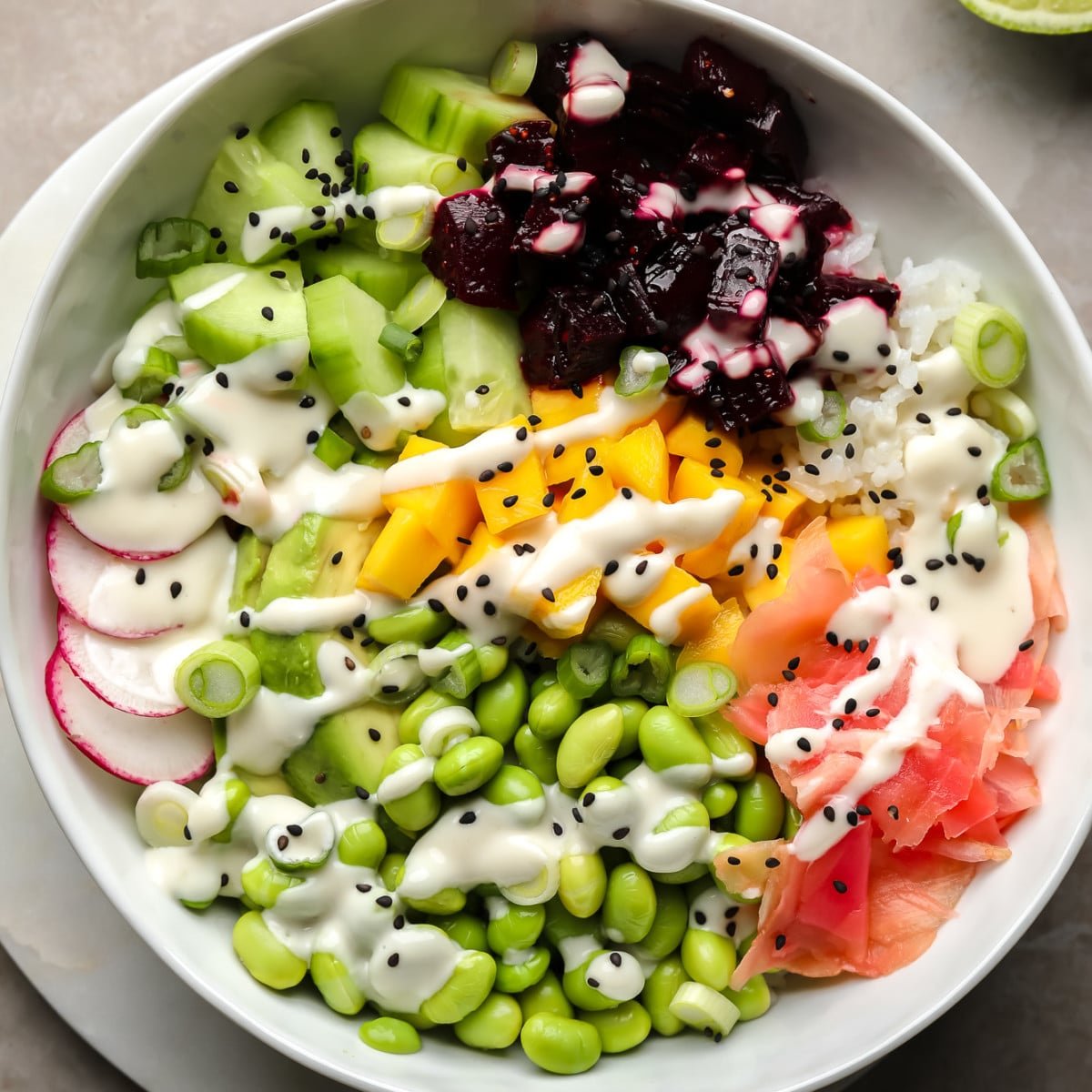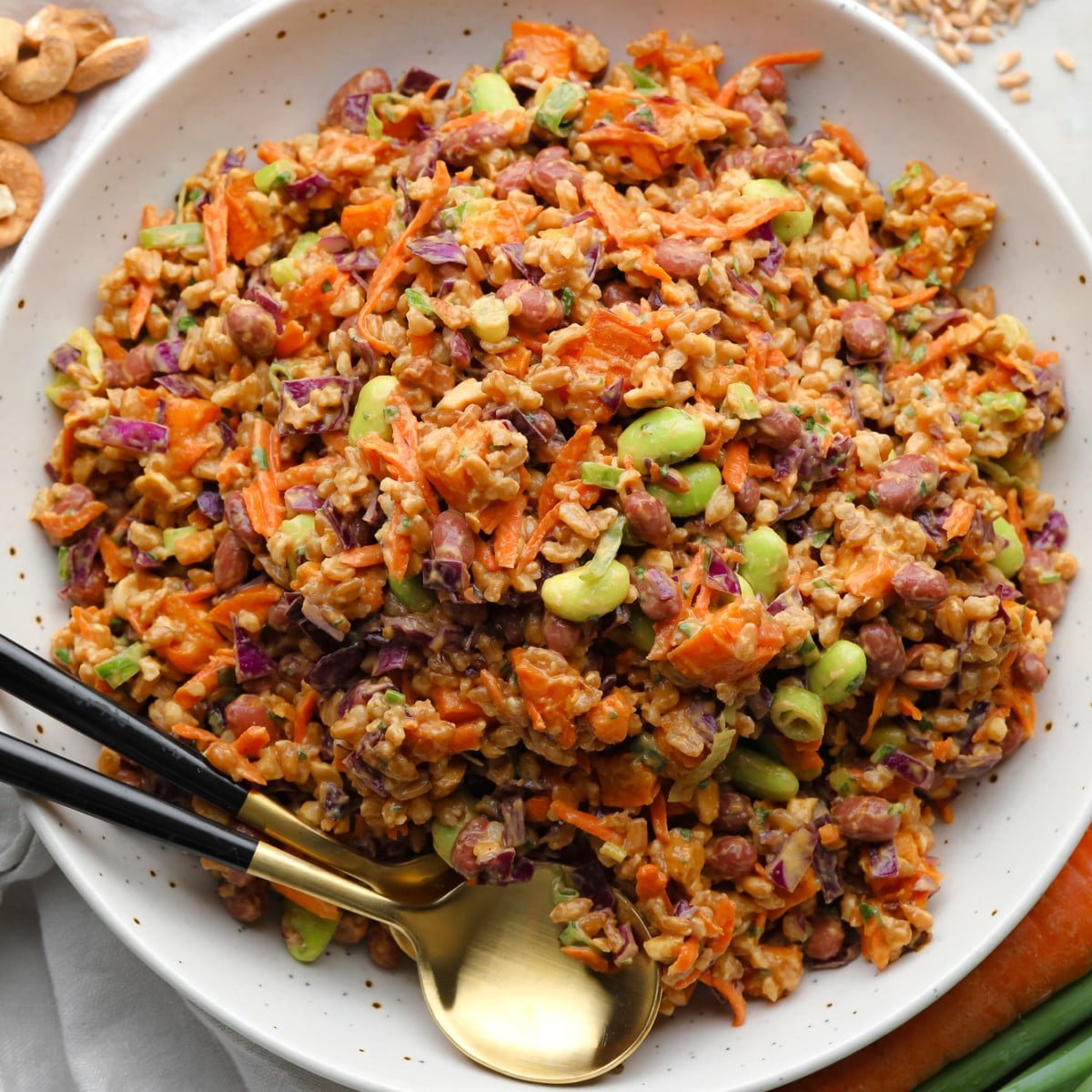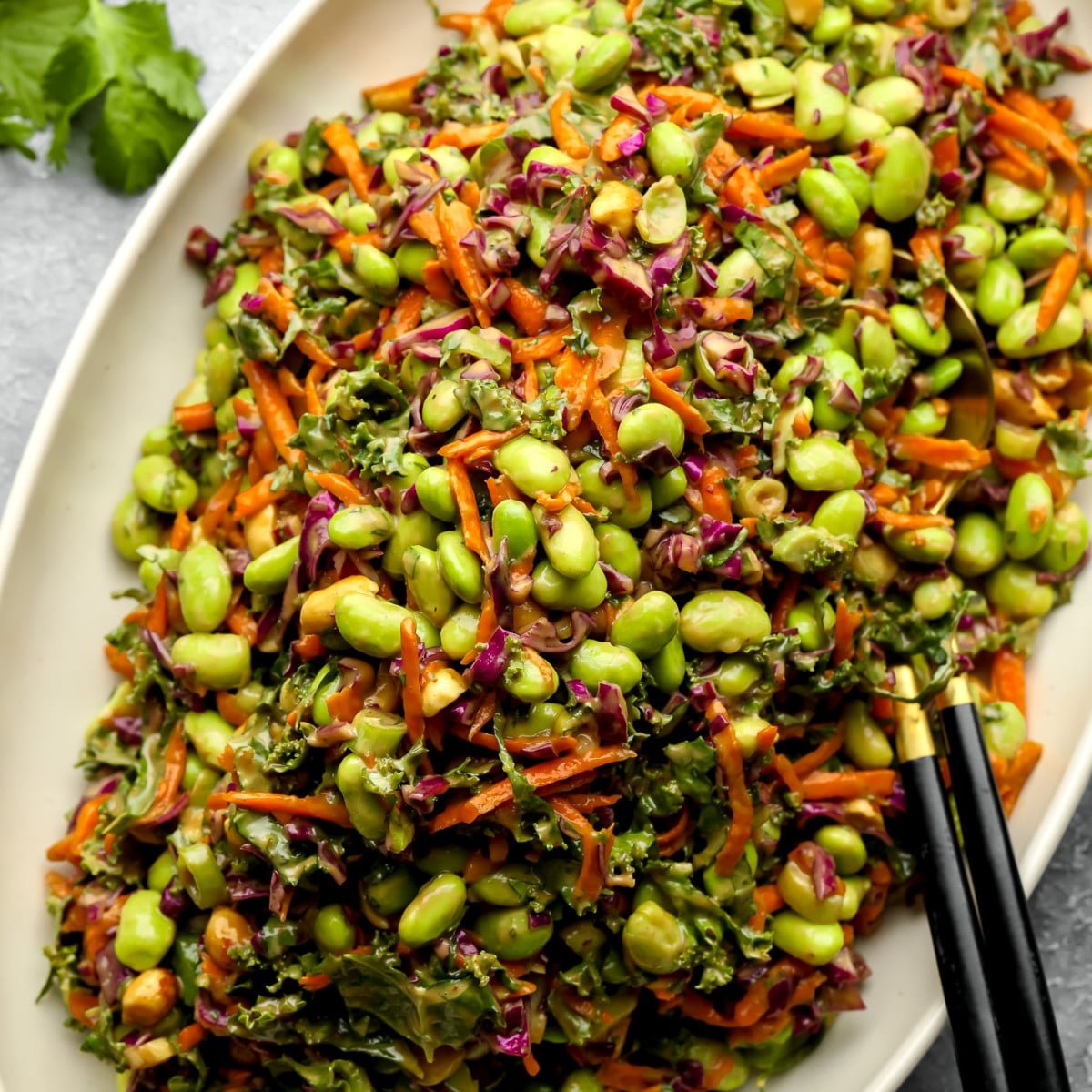Bang Bang Shrimp Recipe
We’re so excited about our Bang Bang Shrimp Recipe! We love this savory shrimp recipe so much! It’s light, crisp and delicious and the bang bang sauce is top notch! This recipe is also very easy to make and always so satisfying! We love how light and crisp the cornstarch coating is – it goes so well with the rich and creamy bang bang sauce (which we could easily put on so many other things!)…
The post Bang Bang Shrimp Recipe appeared first on Spoon Fork Bacon.
 Learn how to make vegan poke bowls with beets! These Beet Poke Bowls are made with marinated beet poke, fresh vegetables, and wasabi mayo to give you a refreshing and incredibly flexible rice bowl that doesn’t skimp on flavor. For more easy vegan grain bowls, check out my Vegan Buddha Bowl, Vegan Burrito Bowl, and…
Learn how to make vegan poke bowls with beets! These Beet Poke Bowls are made with marinated beet poke, fresh vegetables, and wasabi mayo to give you a refreshing and incredibly flexible rice bowl that doesn’t skimp on flavor. For more easy vegan grain bowls, check out my Vegan Buddha Bowl, Vegan Burrito Bowl, and… Sweet Potato Curry with Chickpeas and Spinach is an easy one-pot meal you can make for weeknight dinners and meal prep! It’s comforting, flexible, and loaded with flavor. Craving more easy curry recipes? You’ll have to try my Thai Red Curry, Easy Vegan Curry, and Vegan Thai Green Curry recipes as well! When you’re searching…
Sweet Potato Curry with Chickpeas and Spinach is an easy one-pot meal you can make for weeknight dinners and meal prep! It’s comforting, flexible, and loaded with flavor. Craving more easy curry recipes? You’ll have to try my Thai Red Curry, Easy Vegan Curry, and Vegan Thai Green Curry recipes as well! When you’re searching… This easy Farro Salad recipe tosses chewy farro, roasted sweet potatoes, and colorful veggies in the best peanut dressing. Make it for a healthy and filling lunch or flavor-packed side dish! For more hearty vegan salad recipes, be sure to check out my Lentil Salad, White Bean Salad, and Kale Caesar Salad recipes as well.…
This easy Farro Salad recipe tosses chewy farro, roasted sweet potatoes, and colorful veggies in the best peanut dressing. Make it for a healthy and filling lunch or flavor-packed side dish! For more hearty vegan salad recipes, be sure to check out my Lentil Salad, White Bean Salad, and Kale Caesar Salad recipes as well.… This protein-packed Edamame Salad tosses crunchy and colorful vegetables in a Thai-inspired peanut dressing. Enjoy it as a refreshing side dish or a hearty meal! If you’re on the lookout for more plant-based meal-prep recipes, you’ll also love my White Bean Salad, Creamy Carrot and Lentil Soup, and Easy Chana Masala. I’m tofu’s #1 fan…
This protein-packed Edamame Salad tosses crunchy and colorful vegetables in a Thai-inspired peanut dressing. Enjoy it as a refreshing side dish or a hearty meal! If you’re on the lookout for more plant-based meal-prep recipes, you’ll also love my White Bean Salad, Creamy Carrot and Lentil Soup, and Easy Chana Masala. I’m tofu’s #1 fan…